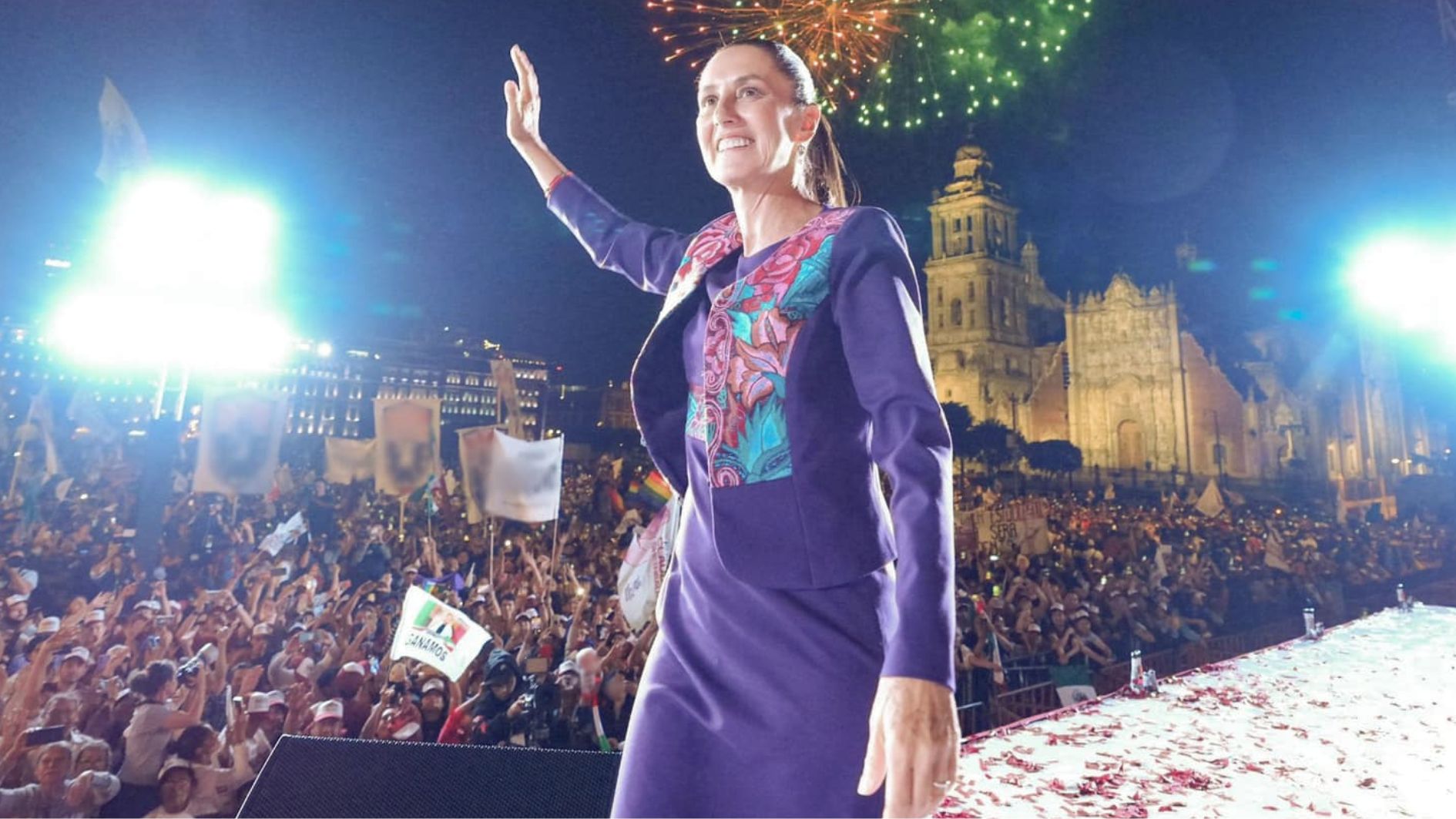
Published 06/05/2024 18:26 | Edited 06/05/2024 18:33
Mexican women’s fight for equality bears similarities to that of most women around the world. After all, wherever it is, being a woman has always implied occupying a subordinate and submissive position in relation to men, including in politics. But, even though inequities continue to be brutal, the feminist struggle has, over the decades, achieved fundamental advances to guarantee equal rights. And the election of Cláudia Sheinbaum to the Presidency of Mexico is an important chapter in this story.
“Talking especially about Latin America, we have societies with patriarchal structures, which work under this logic and ‘from top to bottom’, from the most elementary connections to the most complex. So, Cláudia will need to face this situation too, which is not a simple thing”, says Ana Prestes, Secretary of International Relations at PCdoB.
She concludes by explaining that profound transformations in the structure of society “take time because they are also changes of a cultural nature. Mexico, for example, is an extremely religious, Catholic country, which somewhat reinforces this issue of women’s place in care, in the home, and the difficulty of establishing effective female participation in politics throughout history”.
Read too: Lula congratulates Claudia Sheinbaum on her historic victory in Mexico
An example of the difficulties faced by Mexican women is gender violence, which can be considered the highest point on the machismo scale. Even living under a government on the left, with Lopez Obrador, the country has still not managed to overcome this wound, closely linked to the historic sexist and misogynistic structure naturalized in much of the world.
In the case of Mexico, in the first quarter of this year alone, around two women were murdered per day due to gender issues, in a total of 184 cases, according to Mexico’s National Public Security System. In 2023, there were 830 femicides. In the same year, more than 70 thousand were victims of physical aggression. And, according to UN Women, 70% of Mexican women over the age of 15 have suffered violence at least once in their lives.
The election of a woman like Cláudia, feminist and leftist, is also a step forward in the fight for gender equality. “I don’t arrive alone. We all arrived, with our heroines who gave us our homeland, with our ancestors, our mothers, our daughters and our granddaughters,” she said, after being declared victorious.
Political will
For Ana Prestes, the Mexican election shows that “when there is political will and decision, it is possible to change the condition of women’s participation in positions of power”.
A fundamental step in this direction was the law that guaranteed gender parity in elections, enacted in 2014 and in force since 2018. The rule establishes that parties must present 50% female candidates and 50% male candidates.
Furthermore, a constitutional reform in 2019 established that the search for gender parity must be present in the three powers, at the three levels of the Executive and in autonomous public bodies. The measure became known as the Law of Parity in Everything.
Read too: Claudia Sheinbaum is elected 1st female president in Mexico
The application of these rules increased female participation. In the case of Congress, for example, women went from just over 15% of the total in 2000 to almost 51% in 2021. According to the UN, in 2018, Mexico was the fourth country in participation in parliaments, second only to for Rwanda, Cuba and Bolivia — Brazil is in 39th and the United States, considered the “cradle of democracy”, is in a shameful 76th place.
The Mexican evolutionary process culminated in the historic election of Cláudia Sheinbaum, the country’s first female president, with an impressive percentage of almost 60% of the votes. In second place was another woman, the former center-right senator Xochitl Gálvez, with around 28%.
“Cláudia’s victory is a victory for the advancement of women in politics and, also, the advancement of a project”, says Ana Prestes. She concludes by considering that the new president “is supported by a very consistent, popular and strong project, with great representation in legislative houses and governments”.
According to data from Mexican authorities, the main party of the alliance, the Movimiento de Regeneración Nacional (Morena), led by Lopez Obrador and Cláudia Sheinbaum, now governs 24 of the 32 states — six years ago, there were four. In the capital, Mexico City, Clara Brugada, another “morenista” woman, won with more than 50% of the votes.
According to the results released so far, the coalition that brings together Morena, PT (Partido del Trabajo) and PVEM (Partido Verde Ecologista de México) could achieve a qualified majority in both houses of the Mexican Congress. So far, they would have between 346 and 380 deputies, out of a total of 500 seats. In the case of the Senate, between 76 and 88 out of 128.
In addition to the strong political support, Ana Prestes draws attention to Cláudia’s ideological profile. “She is a woman who is linked to very current struggles — for example, the Palestinian issue. She is from a Jewish family, but she has always made it clear that she defends the State of Palestine.”
And he concludes: “Add to this the fact that Cláudia is an environmental scientist and we are facing, throughout the world, a serious climate crisis. Finally, I emphasize that Mexico is one of the countries with the highest rates of violence against women and she is in this fight too and is a woman who knows the importance of making space for other women.”
Source: vermelho.org.br

